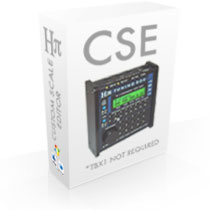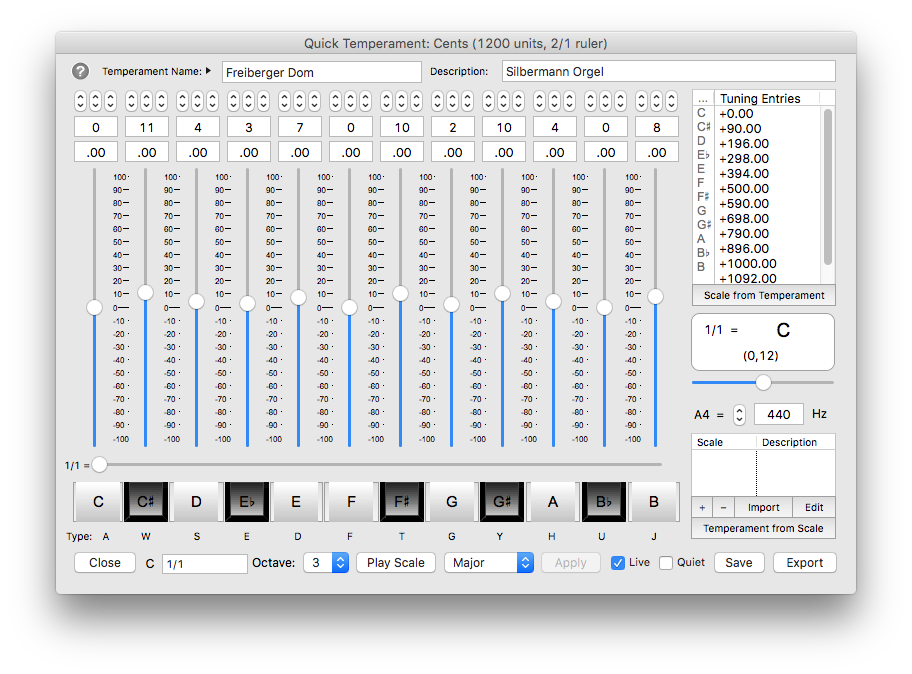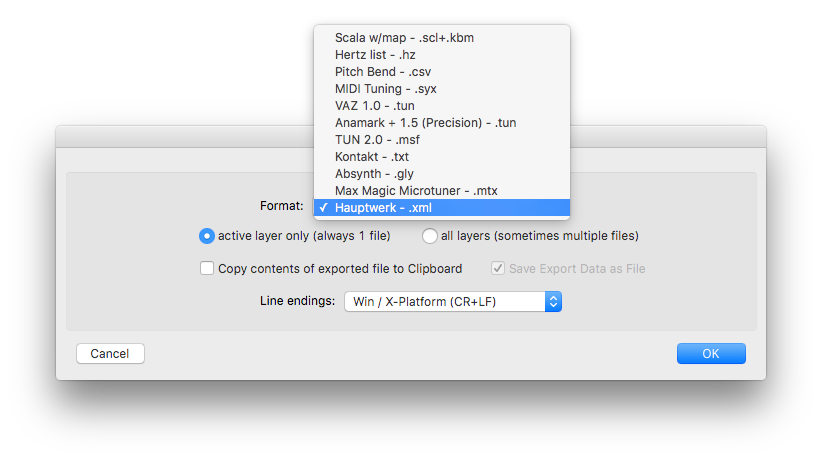



March 03, 2018

Users of Mac OSX Sierra have noticed a few weird things happening with Custom Scale Editor, like a burst of noise occurring at startup, vertical sliders not working, and other strange issues. I was able to solve at least some of these problems in this latest update (which is issued for both Mac and Windows).

Since mid 2017 I've been consulting with development at Synthogy, makers of the brilliant Ivory piano sample player, to help test issues with the tuning functions of their software. Their tuning implementation allows any key to be tuned to any pitch, which is ideal. Previously their MTS implementation had problems, which have now been fixed. Another issue is presently in the works, since samples are currently statically fixed in MIDI positions regardless of tuning, resulting in suboptimal sound for tunings having unusual patterns or more or fewer than 12 notes per octave. It was not hard to convince Synthogy development that samples used for target pitches should match the desired frequencies as closely as possible. As an aid to their development and testing process, they have been using CSE, and for this I added a new function to send an MTS Bulk Tuning Dump out to MIDI in real time, since this is the method expected by Ivory. Synthogy has been very receptive and responsive about all this, and I've been assured that they will be issuing an update to address the sample-to-frequency matching issue soon.

I also recently corresponded with development at Milan Digital Audio, makers of the excellent Hauptwerk pipe organ sample player, concerning their support of user temperament files. Hauptwerk has a system requiring unique IDs for the creators of the files as well as the files themselves. Although any Hauptwerk user can ask for an ID, the requirement for unique IDs for every file poses a problem. I was first granted a supplier ID, and then given permission to add exporting of Termperament files with IDs in the range normally delegated for private use (800000-899999). Previously their published documentation concerning those IDs included a strict rule against distributing the files, which I questioned. As a result they changed the language to clarify that these numbers are not for distribution in custom organ files, but there is no explicit rule against sharing the files for private use. So now anyone can add a temperament to Hauptwerk using CSE in a matter of minutes. Yay!
For example, I have several recordings of the Silbermann organ in the cathedral in Freiberg, Germany. The tuning used there is (in cents): c 0, cis 90, d 196, es 298, e 394, f 500, fis 590, g 698, gis 790, a 896, b 1000, h 1092, as given on the Freiberger Dom webpage. I simply typed the values into the list at the top right of the Quick Temperaments window, saved the temperament, and chose File > Export … Hauptwerk .xml


ScalaVista (which has also just been updated) has thousands of tunings that can be sent instantly to CSE, and now of course these also can then be exported as Hauptwerk temperaments. And the best part is that the Hauptwerk format allows any key to be retuned to any pitch, so you're not limited to 12-tones per octave. For example, here is my Prelude and Fugue in 8ET recorded using the Vollenhov Bosch/Schnitger organ sample set using Hauptwerk.
Please download the update from the cse software page. And don't forget the three other software updates that were also issued yesterday:
Regards,
Aaron
[ Showing 1 entry | Previous entry | Next entry | Show all entries ]